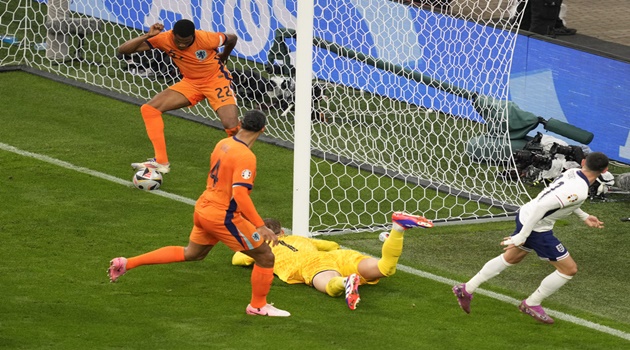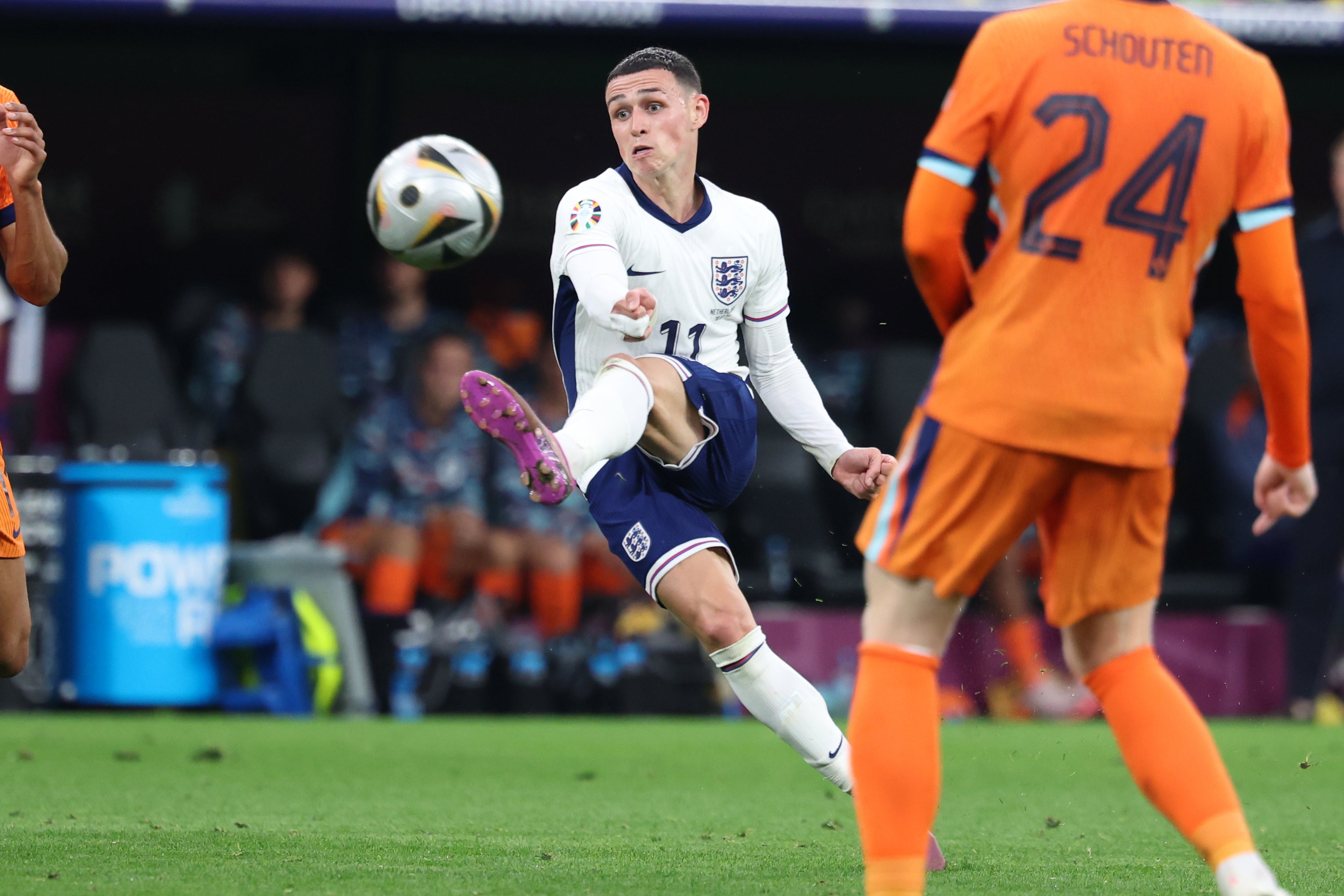It was the performance England had been waiting for, but Phil Foden may have needed the opponent.
For 45 minutes, one of the Premier League’s best and the national team’s most capable players looked every bit the star he has become: a player as skilled at finding space as he is at exploiting it, as consistent in his decision-making as in his execution.

After arguably making five false starts, intermittently displaying his remarkable touch but too frequently plagued with horizontal unimagination, Foden transformed into a playmaker, goal threat, and counter-attacking fulcrum all at once against the Netherlands.
Many had urged that he produce or be replaced, with options galore among the 26, but his manager’s trust, like that of Jude Bellingham, Harry Kane, and others who have been questioned, has been unwavering. This time, he was rewarded with not just a sign of what is possible, but also with the exact path that England will take to win the Euro 2024 final on Sunday against Spain.
There are so many factors to consider, from England clearly attacking with more pace as a team to the Dutch creating gaps as they attacked themselves – the first real opponent to go at Gareth Southgate’s team for any continuous period of time or with any level of technical skill. They will face it again in four days. Nonetheless, England improved, with Foden leading the way.

Around that time, Foden was always ready to receive possession, always able to identify holes and link up with Kobbie Mainoo and Bukayo Saka.
One curled shot against the outside of the post was close to perfection. One close-control dribble was really successful, with a clever finish between the ‘keeper’s legs to match – but Denzel Dumfries, who had just conceded the penalty that tied the game, was on hand to clear the line.
Foden fired another low shot before the break, forcing Bart Verbruggen into a save, but it was his involvement that made the biggest difference: dropping deeper to facilitate transition play, drifting across to create overloads in Bellingham’s channel, and finally running in behind Kane.
England had no one doing that job until Saka faced the Swiss, and it contributed to such a significant difference in the quality of build-up play and the opportunities created as a result of it.
Foden was so active during the half that by halftime, he had covered nearly 5.6km, more ground than any other player on the pitch – perhaps not surprising given how frequently Foden closed down the goalie before darting back into his channel.

It raises issues about why he didn’t find this level sooner, or why England didn’t have a set-up to allow him to.
And the most important question of all: how did Southgate and his team allow the game to drift so far in the second half that Foden was almost non-existent?
Perhaps Bellingham was the more unknown player, and Saka was sidelined by the location of the game, but Foden moved from being the hub of forward movement to an afterthought in terms of ball placement.
After Foden joined the party, the second half became what typically follows: a dreadful hangover, a lack of clear thought, and an inability to drive… in this case, onward.
Ultimately, the invitation was not completely canceled. Foden and Kane were replaced for the closing 10 minutes of the contest, and despite the Dutch appearing to be the stronger as the game progressed, it was one of those substitutions – Ollie Watkins – who scored the winning goal to send England to Berlin.

It offers Southgate one more chance to create the ultimate gameplan, which will have to be developed in stages, with different components and different types of successes.
Even after a low-key second half, England controlled possession in this semi-final, with 58% over 90 minutes, nearly matching their tournament average and placing them third in that category.
They will not have a similar tally against Spain.
La Roja is technically the best nation in the tournament, and they may also be the best tactically. However, as the first half against the Netherlands demonstrated, the Three Lions prefer to play into areas with pace – countering, moving quickly, and having defined build-up concepts.
And Phil Foden must be vital to that, in every sense of the term, if England is to go one step further than they did three years ago at home.